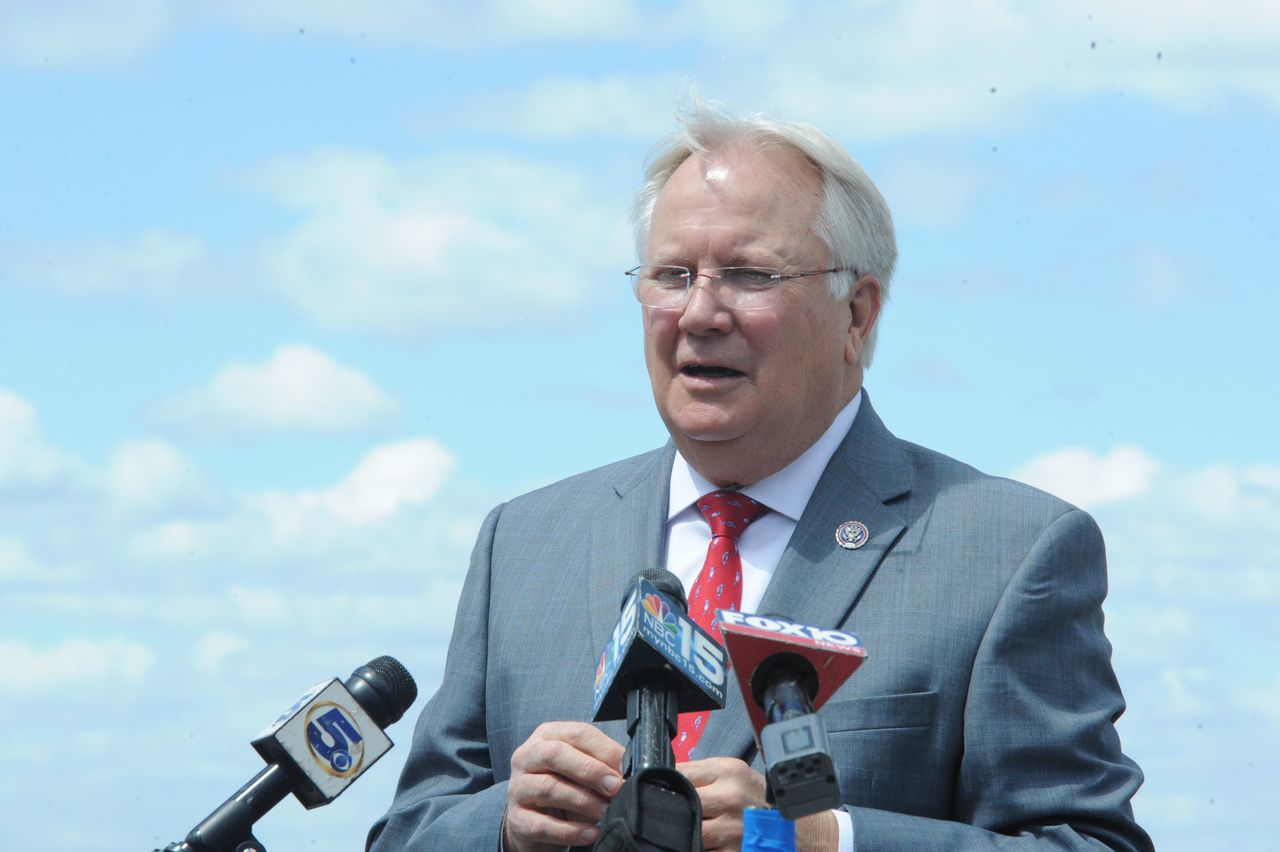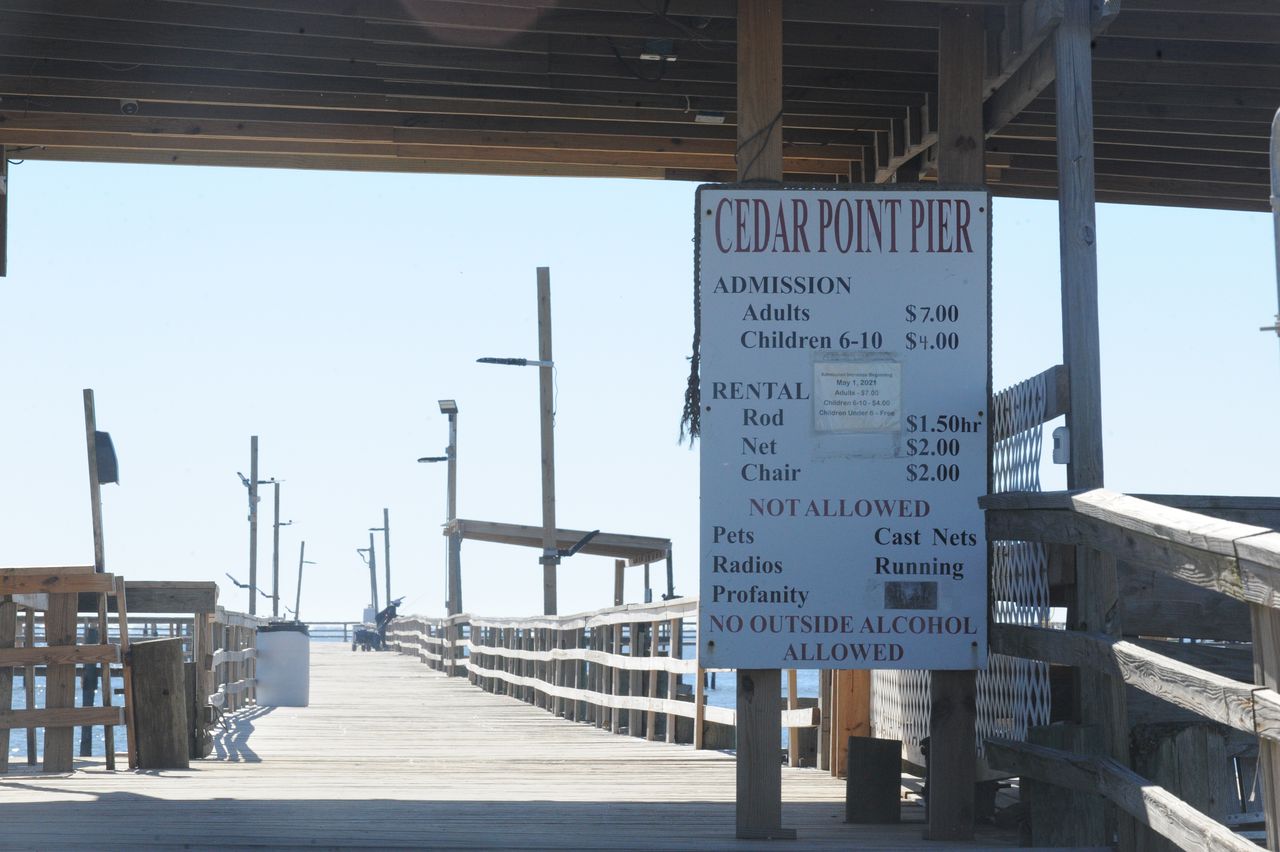Mobile, Baldwin counties to get $49.7 million from offshore oil and gas leases
Mobile and Baldwin counties are set to get $49.7 million in offshore oil and gas lease revenues, representing a 43% increase from what the region got last year.
The amount also represents the second largest amount going to Alabama in the 14 years the revenue sharing program has been in place. The program — called the Gulf of Mexico Energy Security Act (GOMESA) — allocates portions of the leases to Alabama, Mississippi, Louisiana, and Texas.
“Alabama continues to directly benefit from GOMESA dollars, as well as oil and gas leases and this is certainly welcome news,” Alabama Gov. Kay Ivey said in a statement to AL.com Thursday. “These funds allow Alabama to continually invest in important sewer infrastructure, water quality, land acquisitions, research and recreational access improvements in Baldwin and Mobile counties.”
She added, “It is critical for all coastal states and our country that we maintain oil and gas leases.”
Environmental organizations, though, criticized the program and the Biden Administration for what they have said is a broken 2020 campaign pledge to cease oil and gas exploration in the Gulf of Mexico.
“Revenues from oil and gas lease sales for a region hit hard by rising seas, algal blooms, and irreversible damage from offshore oil spills has all the hallmarks of a perverse incentive and an unjust trade,” said Chris Robbins, associate director at Ocean Conservancy, a non-profit environmental advocacy group based in Washington, D.C.
Rising revenues
The GOMESA announcement came from the U.S. Department of the Interior, which administers the program. The allocation to Alabama is part of $353.2 million in fiscal year 2023 energy revenues that go to the four offshore Gulf oil and gas producing states, political subdivisions such as counties and parishes.
The overall total represents the largest amount of money allocated to the four states since the program was enacted in 2009. Alabama is one of four states that gets 37.5% of the oil and gas leases as specified within GOMESA.
The Mobile County Commission is purchasing the Cedar Point Fishing Pier near Dauphin Island, Ala., through $2.1 million in GOMESA funds allocated to the state of Alabama. The pier, as pictured on Monday, November 8, 2021, has long been family owned. The county plans to upgrade the structure and maintain it as an attraction at the foot of the Dauphin Island Bridge. (John Sharp/[email protected]).
The Alabama total goes completely to Mobile and Baldwin counties, and state law adopted last year prevents it from being diverted to other regions of the state.
The amount includes $39.8 million to the state, $5.3 million to Mobile County and $4.7 million to Baldwin County. The state total is administered by representatives of Ivey’s administration including Chris Blankenship, commissioner of the Alabama Department of Conservation and Natural Resources.
Blankenship said his office said a solicitation for GOMESA-funded projects closes next week. He said he will work with Ivey’s office on selecting projects that will be funded with the money, with an announcement expected later in the spring or summer.
Ivey, in October 2021, traveled to Spanish Fort to announce how $41 million of the state’s portion of the 2020 GOMESA funds would be spent. It was also part of a birthday celebration for the governor, and the $41 million remains the highest amount the state has gotten from the program.
Last year, the state got $35 million.
Revenues have skyrocketed since 2017. Data from the U.S. Department of Interior shows that Alabama got a total of $263,00 in oil and gas lease revenues in 2017. A year later, when Phase II of the GOMESA program kicked in, revenues shot up to $26 million. Two years ago, the $41 million to the state combined with money to the two counties, resulted in $50 million in lease revenues back to Alabama – which remains the all-time high.
“It’s typically in the $35 million range, so (the 2023 announcement) is great news,” state Senator Chris Elliott, R-Daphne, said. He sponsored legislation that was adopted last year that ensures the state’s allocation remains in the two coastal counties.
The amounts going to each of the counties are represented by their respective county commissions.
In Alabama, GOMESA revenues have funded park expansions, land acquisitions for conservation projects and beach access, new boat ramps, fishing piers, litter traps and more. It’s played a crucial role in the development of new bayfront parks in Mobile, Daphne and Spanish Fort. It also solely financed a new boat ramp in Orange Beach.
Reactions

U.S. Rep. Jerry Carl, R-Mobile, speaks during a news conference on Monday, March 22, 2021, at the Five Rivers Delta Resource Center in Spanish Fort, Ala. (John Sharp/[email protected]).
The announcement also comes on the same day that the U.S. House passed the GOP-led Lower Energy Costs Act that, among other things, increases the share of oil and gas revenues from 37.5% to 50%.
“Today’s announcement from the Department of Interior shows just how important GOMESA funds are to Alabama and our coastal communities,” said U.S. Rep. Jerry Carl, R-Mobile, in a statement to AL.com. “The timing could not be better since earlier today, House Republicans passed (the Lower Energy Costs Act).”
He said the legislation also eliminates the cap on GOMESA funds that Alabama can receive, something which Blankenship said is important for the future of GOMESA revenues.
The Biden Administration has threatened to veto the legislation. The White House Office of Management and Budget said the legislation would, among other things, increase energy costs on consumers.
The GOMESA announcement comes after months of criticism from Republican lawmakers at the Biden Administration over a potential cutback of oil and gas exploration in the Gulf.
Last summer, Republican lawmakers fretted over the potential of the Biden Administration ceasing oil and gas exploration as he vowed during the 2020 presidential campaign.
Things have changed, and environmental groups are upset. The Biden Administration, earlier this month, approved the massive ConocoPhillips’ Willow Project, an oil drilling initiative in Alaska.
On Wednesday, 1.6 million of acres of Gulf waters were sold during an auction to fossil fuel companies looking to extract oil and natural gas.
The administration agreed to open the Gulf waters to drilling during negotiations ahead of the August approval of the Inflation Reduction Act of 2022. Democratic leaders and conservative Democratic Senator Joe Manchin of West Virginia reached a deal that included requirements for new oil and gas leases.
Environmental groups, like the Sierra Club, filed a lawsuit in federal court this month to block the oil and gas lease sale in the Gulf. The groups charged that the sale violates federal law by not adequately addressing how the oil and gas extraction could impact climate stability, the health of residents along the Gulf coast, the existence of the critically endangered Rice’s whale. With only 51 living, Rice’s whales are considered the world’s rarest marine mammals.
The activity also delays the first-ever auction of wind energy lease areas in the Gulf.
Robbins, with Ocean Conservancy, said the oil and gas lease activities are also occurring near the 13th anniversary of the Deepwater Horizon disaster in 2010, which led to an oil spill that nearly crippled coastal economies in its immediate aftermath.
“It’s time for us to stop putting the Gulf of Mexico and its people and wildlife at more risk from offshore oil and gas development, especially when clean ocean energy options like offshore wind development are within reach,” he said.
